|
|
|
Cambridge University Press
|
Robert Schumann had a difficult start as a composer. Denied any significant musical upbringing, he took a long time through indirect routes to establish himself as a major composer. Persistent illness also dogged his work. His final catastrophic mental collapse has combined with the autobiographical and secretive aspects of his music to cast for posterity a veil of ominous mystery over his entire life. Yet this is only one view. Schumann battled his personal demons and was acutely self-aware and organized. He transformed himself from a brilliant youthful fantasist in small forms into a composer of extended works in every genre. This book provides a new focus on Schumann as a practical working musician interacting with the professional world to develop his creative gifts to the full, and examines the central role of Clara Wieck Schumann in helping to bring this about. |
|
Much of international law, like much of contract, is enforced not by independent sanctions but rather through cooperative interaction among the parties, with repeat dealings, reputation, and a preference for reciprocity doing most of the enforcement work. Originally published in 2006, The Limits of Leviathan identifies areas in international law where formal enforcement provides the most promising means of promoting cooperation and where it does not. In particular, it looks at the International Criminal Court, the rules for world trade, efforts to enlist domestic courts to enforce orders of the International Court of Justice, domestic judicial enforcement of the Geneva Convention, the domain of international commercial agreements, and the question of odious debt incurred by sovereigns. This book explains how international law, like contract, depends largely on the willingness of responsible parties to make commitments. |
|
A handy beginner's guide, this textbook introduces the various stages of linguistic fieldwork, from the preparation of the work to the presentation of the results. Drawing on over forty years of fieldwork experience between them, in over two dozen languages, the authors pack the book with examples and anecdotes from their experiences and include practical exercises for students to test what they have learned. Independent of any particular perspective, the methods can be applied to a wide range of fieldwork settings, for projects with very different theoretical backgrounds and without the need to travel too far. The book covers 'traditional fieldwork' such as language description and documentation, as well as less typical methods, including language contact and quantitative studies with experiments or questionnaires. |
|
This collection of ten essays, originally published in 1989, by leading scholars of the time from five countries brings together some of the most important economic contributions to the Third World Congress for Soviet and East European Studies. First published at a time when the eastern bloc in general was confronting major economic problems, the essays in this volume combine both topicality and detailed scholarly analysis, addressing such significant topics as energy conservation, regional development and technological innovation. Although written primarily from an economic standpoint, both the approach and language used should be accessible to scholars in the related fields of politics and development studies, for whom the questions raised in this volume are likewise of great importance. |
|
John Pocock is arguably the most original and imaginative historian of ideas of modern times. Over the past half century he has created an audience for his work which is truly global, and he has marked the way in which the history of political thought is studied as deeply and personally as any historian of the period. The essays in this major new collection are selected from a lifetime of thinking about political thought, and how we should study it in history. What in fact does it mean to write the history of a political society, and what kind of political thought is this? Professor Pocock emphasises both the theory and practice of political thought considered as action in history, and the political theory of historiography considered as a form of political thought. Together these essays constitute a collection that any serious student of politics and intellectual history needs to possess. |
|
Human rights is an important issue in contemporary politics, and the last few decades have seen a remarkable increase in research and teaching on the subject. This book introduces students to the study of human rights and aims to build on their interest while simultaneously offering an alternative vision of the subject. Many texts focus on the theoretical and legal issues surrounding human rights. This book adopts a substantially different approach which uses empirical data derived from research on human rights by political scientists to illustrate the occurrence of different types of human rights violations across the world. The authors devote attention to rights as responsibilities as well as to responsibilities, which do not stop at one country's political borders. They also explore how to deal with repression and the aftermath of human rights violations, making students aware of the prospects for and realities of progress. |
|
This book investigates the relationship between the character of political regimes in Russia's subnational regions and the structure of earnings and income. Based on extensive data from Russian official sources and surveys conducted by the World Bank, the book shows that income inequality is higher in more pluralistic regions. It argues that the relationship between firms and government differs between more democratic and more authoritarian regional regimes. In more democratic regions, business firms and government have more cooperative relations, restraining the power of government over business and encouraging business to invest more, pay more and report more of their wages. Average wages are higher in more democratic regions and poverty is lower, but wage and income inequality are also higher. The book argues that the rising inequality in postcommunist Russia reflects the inability of a weak state to carry out a redistributive social policy. |
|
In these essays, written (with one exception) between 1978 and 1982, Immanuel Wallerstein elaborates on the political and theoretical implications of the world-systems perspective outlined in his celebrated books The Modern World-System and The Capitalist World-Economy. Whereas those books centred on the historical development of the modern world-system, the essays in this volume explore the nature of world politics in the light of Wallerstein's analysis of the world-system and capitalist world-economy. Throughout, the essays offer new perspectives on the central issues of political debate today: the roles of the USA and the USSR in the world-system, the relations of the Third World states to the capitalist 'core', and the potential for socialist or revolutionary change. Different sections deal with the three major political institutions of the modern world-system: the states, the antisystemic movements, and the civilizations. The states are a classic rubric of political analysis. For Wallerstein, the limits of sovereignty are at least as important as the powers — these limits deriving from the obligatory location of the modern state in the interstate system. Social movements are a second classic rubric. For Wallerstein, the principal questions are the degree to which such movements are antisystemic, and the dilemmas state power poses for antisystemic movements. Civilizations, in contrast, are not normally seen as a political institution. That however is for Wallerstein the key to the analysis of their role in the contemporary world, and thereby a key to understanding the politics of social science. |
|
This title provides the reader with immediate access to understanding the world of international arbitration. Arbitration has become the dispute resolution method of choice in international transactions. This book explains how and why arbitration works. It provides the legal and regulatory framework for international arbitration, as well as practical strategies to follow and pitfalls to avoid. It is short and readable, but comprehensive in its coverage of the basic requirements, including the most recent changes in arbitration laws, rules, and guidelines. In the book, the author includes insights from numerous international arbitrators and counsel, who tell firsthand about their own experiences of arbitration and their views of the best arbitration practices. Throughout the book, the principles of arbitration are supported and explained by the practice, providing a concrete approach to an important means of resolving disputes. |
|
State-space methods form the basis of modern control theory. This textbook is devoted to a description of these methods in the analysis of linear multi-input, multi-output dynamic systems. Following a chapter that sets out the basic concepts and definitions, the author discusses state equations of finite dimensional systems and their solution. He then presents the principles of time-domain and frequency-domain analysis, and the properties and applications of the Z-transformation. Separate chapters deal with the controllability, observability, and stability of linear systems. The appendix offers a useful tutorial review of the key results from matrix theory and linear algebra. The book includes several worked examples, and there are problems at the end of each chapter. It will be of great use to advanced undergraduate and graduate students of electrical or mechanical engineering taking courses in linear systems or control systems. |
|
In 1979 Elizabeth Eisenstein provided the first full-scale treatment of the fifteenth-century printing revolution in the West in her monumental two-volume work, The Printing Press as an Agent of Change. This abridged edition, after summarising the initial changes introduced by the establishment of printing shops, goes on to discuss how printing challenged traditional institutions and affected three major cultural movements: the Renaissance, the Reformation, and the rise of modern science. Also included is a later essay which aims to demonstrate that the cumulative processes created by printing are likely to persist despite the recent development of new communications technologies. |
|
Psychology for Language Teachers examines the field of educational psychology and considers various ways in which a deeper understanding of this discipline can help language teachers. The first part presents an overview of educational psychology, and discusses how different approaches to psychology have influenced language teaching methodology. Following this, four themes are identified: the learner, the teacher, the task and the learning context. Recent psychological developments in each of these domains are discussed and implications are drawn for language teaching. Areas considered include approaches to learning, motivation, the role of the individual, attribution, mediation, the teaching of thinking, the cognitive demands of tasks and the learning environment. Psychology for Language Teachers does not assume previous knowledge of psychology. |
|
Asserting that regional patterns of security are increasingly important in international politics, this study presents a detailed account of relations between global powers. It emphasizes their relationship with the regional security complexes which make up the contemporary international system. The book analyzes Africa, the Balkans, Eastern and Western Europe, East Asia, the Middle East, North America and South Asia, tracing the history of each region through the present. |
|
This brief guide is ideal for science and engineering students and professionals to help them communicate technical information clearly, accurately, and effectively. The focus is on the most common communication forms, including laboratory reports, research articles, and oral presentations, and on common issues that arise in classroom and professional practice. This book will be especially useful to students in a first chemistry or physics laboratory course. Advanced courses will often use the same formatting as required for submission to technical journals or for technical report writing, which is the focus of this book. Good communication habits are appropriate in all forms of technical communication. This book will help the reader develop effective communication skills. It is also ideal as a reference on stylistic and grammar issues throughout a technical career. Unlike most texts, which concentrate on writing style, this book also treats oral presentations, graphing, and analysis of data. |
|
First published in 1954, this volume presents a description and analysis of trends in the structure, organisation and technique of the distributive trades in the United Kingdom from 1850 to 1950. Special attention in the work was given to the growth of large-scale retailing and changes in the character of consumer-demand and shopping habits in the shops themselves and in retailing techniques. The study was intended to provide a contribution to a little-explored aspect of the social and economic history of the British people and to the economics of distribution and of scale in distribution. This book is complementary to the earlier study issued by the National Institute of Economic and Social Research — The Distribution of Consumer Goods (Cambridge, 1950) — which examined the costs and methods of distribution in one year. It will remain of value to anyone interested in the history and development of the British economy. |
|
From its mythical foundation in 753 BC to its sack in the fifth century AD, the city of Rome had an impact on the world that it would be hard to overestimate. At its height the empire which it built up stretched from northern Britain to the deserts of Arabia. In this new history an international team of historians, archaeologists and classicists presents a vision of the world's most famous imperial power based on the most up-to-date research and discoveries. Chapters and box-features present gripping accounts of Roman history and literature and deal with themes ranging from medicine to warfare. They are supported by a rich set of illustrations of sites, monuments and works of art from across the Empire. Read together, these build up a fascinating picture of a civilization permeated by its imperial role, and of the colossal costs as well as the gains of empire. |
|
The first full-length scholarly monograph to examine Jane Austen's writings within the traditions of Romanticism. It argues that Austen's central position within the literary canon can only be fully understood by locating her work within Romantic cultural traditions. Taking the contemporary Austen revival as its cue, the study presents a series of historically contextualized readings of Austen's juvenilia (Catharine, or The Bower and The History of England), Sense and Sensibility, Mansfield Park and Austen's posthumously published novel, Sanditon, to examine ways in which Romantic-period definitions of nation, culture and literature continue to function in contemporary readings of Austen and her period. An investigation of the sexual politics of national culture, heritage culture and literary canon-formation informs the study's discussion of the relationship between Romanticism, Austen and the literary canon. |
|
When property rights and environmental legislation clash, what side should the Rule of Law weigh in on? It is from this point that Jeremy Waldron explores the Rule of Law both from an historical perspective — considering the property theory of John Locke — and from the perspective of modern legal controversies. This critical and direct account of the relation between the Rule of Law and the protection of private property criticizes the view — associated with the 'World Bank model' of investor expectations — that a society which fails to protect property rights against legislative restriction is failing to support the Rule of Law. In this book, developed from the 2011 Hamlyn Lectures, Waldron rejects the idea that the Rule of Law privileges property rights over other forms of law and argues instead that the Rule of Law should endorse and applaud the use of legislation to achieve valid social objectives. |
|
What went wrong in Russia's decade-old post-communist transition? A group of leading young scholars answer this question by offering assessments of five crucial political arenas during the Yeltsin era: elections, executive-legislative relations, interactions between the central state and the regions, economic reforms, and civil-military relations. All of the contributors recognize that adverse historical legacies have complicated Russian democratization. They challenge structural explanations that emphasize constraints of the pre-existing system, however, and concentrate instead on the importance of elite decisions and institution-building. The authors agree that elites' failure to develop robust political institutions has been a central problem of Russia's post-communist transition. The weakness of the state and its institutions has contributed to a number of serious problems threatening democratic consolidation. These include the tensions between the executive and the legislature, the frail infrastructure for successful market reform, and the absence of proper civilian control over the armed forces. |
|
This book was originally published in 1965. At the time of publication no nation had greater knowledge of, or interest in, the development and exploitation of the Arctic lands than the Soviet Union. The skills acquired through living in remote and cold regions were being put to use in the Antarctic with considerable success. Dr Armstrong, who also made a long study of the Arctic and sub-Arctic region, here follows the Russian advance into the north (beyond the Arctic circle in Europe and latitude 60oN. in Asia) from their first appearance there until 1959. He examines the causes and effects of their settlement and compares the solutions to some of the problems with those made in North America. Dr Armstrong's study was intended not merely for geographers and historians, but also for courses on settlement problems. |
|